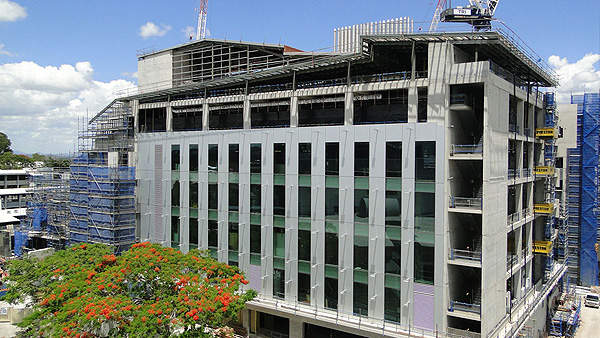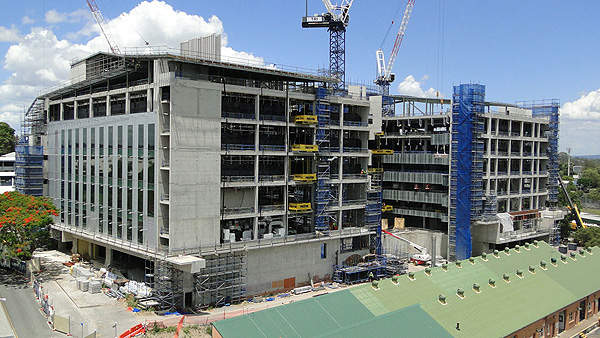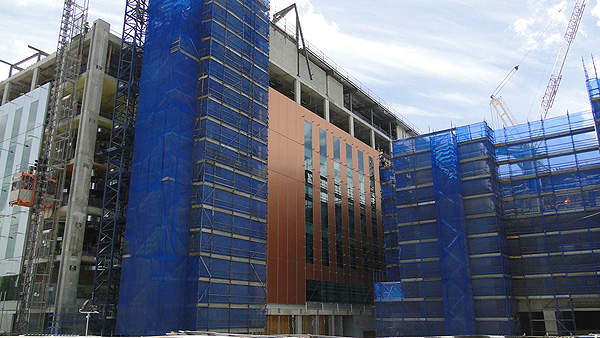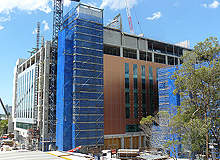The Translational Research Institute (TRI) is a medical research facility located at the Princess Alexandra Hospital campus in Woolloongabba in Brisbane, Australia. It was constructed as a seven-storey building for providing support for medical research, administration and teaching.
A 70,000ft² biopharmaceutical manufacturing facility was built next to the main TRI building. The new facility accommodates a mammalian biopharmaceutical production facility. It is located near the Pharmacy Australia Centre of Excellence.
Construction began in October 2010 and the project was completed in 2012. The land for the facility was donated by the Queensland state government.
The biopharmaceutical plant was built at a cost of A$65m ($50m) and was commissioned in October 2013.
Translational Research Institute project and purpose
The TRI project is sponsored by a joint venture between the University of Queensland’s Diamantina Institute, Mater Medical Research Institute and the Princess Alexandra Hospital’s Centres for Health Research, along with the Queensland University of Technology’s Institute of Health and Biomedical Innovation.
The project’s purpose is to increase investment in and commercialisation of medical breakthroughs in Australia to improve disease-specific research networks of researchers and clinicians. In addition, the aims to improve Australian health standards by introducing new medical prophylactic therapies and treatments.
TRI and biopharmaceutical facility details
The TRI facilitates the discovery, production and testing of biopharmaceuticals and treatments. The research focus is on cancer, diabetes, obesity and liver diseases, as well as on inflammatory diseases such as HIV, malaria and bone and joint diseases.
The biopharmaceutical manufacturing facility is designed to help developers of new biologic drugs to outsource their development, as well as providing technical and economical assistance. It houses a pilot plant to help bring newly discovered drugs to pilot commercialisation.
The TRI aims to ensure Australian bioresearch progresses quickly from lab work to late-stage research in a clinical setting using high-purity material.
Facilities at the Translational Research Institute building
The TRI building covers a 32,000ft² total area and has seven storeys, including four floors of laboratory research, administration and teaching facilities. It houses around 700 researchers.
It also has an animal house, a cell therapies facility, staff support spaces, a large lecture theatre and advanced education facilities.
The facility is equipped with two in-building 11kV/415V substations, a 3.2MW / 11kV standby generator, and photovoltaics and intelligent energy totalling 70kW. It also features electrical and information and communications technology (ICT) components, such as a Tier 2.5 tertiary data centre and F/UTP Category 6A structured cabling infrastructure.
Contractors involved with the TRI project in Brisbane
Watpac Construction was awarded the building construction contract for the TRI facility in May 2010. The building was designed by Wilson Architects and Donovan Hill.
Aurecon was awarded a contract to provide structural, façade, electrical, dry fire engineering and ICT services for the facility.
The mechanical services contract was awarded to MultiTech Solutions. The contractor was responsible for design, documentation and contract administration.
In May 2010, Netherlands-based medical treatment manufacturer DSM Biologics agreed to design, build and operate the biopharmaceutical manufacturing facility at the TRI.
Financing for the medical research facility project
The TRI project received $140m in funding from the Australian Government, $107m from the Queensland government and $50m from Atlantic Philanthropies. The Queensland University of Technology provided $25m and the University of Queensland contributed $10m.
The Australian federal government agreed to provide $10m for biopharmaceutical manufacturing at the facility.






